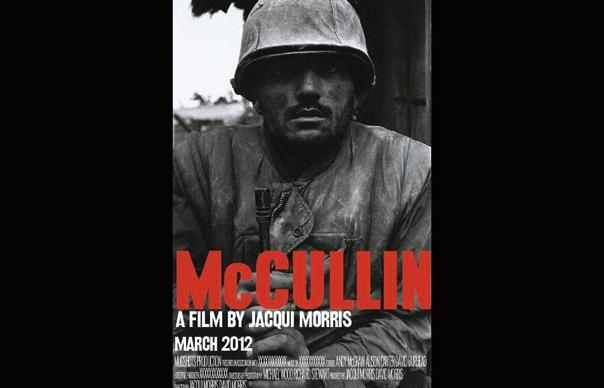DIRECTOR Jacqui and David Morris STARRING Don McCullin Towards the end of last year, war photographer Don McCullin recently travelled to Syria for one last trip to the frontline. Interviewed on Radio 4 from Aleppo in December 2012, 76 year-old McCullin said, “I’m not important in all this. I’m just a carrier pigeon bringing this back home.” An amazing, humbling reflection on a career spanning close to 50 years, that saw Don McCullin cover Biafra, Vietnam and Northern Ireland, bringing back home photographic proof of the horrific fallout of war on civilians. As he says early in Jacqui and David Morris’ terrific documentary, “You’re trying to stay alive, you’re trying to take pictures, you’re trying to justify your presence there and you think, ‘What good is this going to do anyway, these people have already been killed?’” McCullin, who started out photographing street gangs in his native North London in the 1950s, has a soft, precise way of speaking. He looks like a rougher Terence Stamp. The Morris’s film mixes recent interviews with McCullin with contemporaneous news footage and McCullin’s own photographs, which have lost none of their power. His experiences are incredible - from the first execution he saw, at dawn in a Saigon market in 1965, through Vietnam, the Lebanon and beyond. “My family suffered very badly,” he remembers. “I was always waving goodbye to them and one wonders in their mind were they ever thinking, ‘Will we ever see this strange man again who is supposed to be our father?’” Michael Bonner
DIRECTOR Jacqui and David Morris
STARRING Don McCullin
Towards the end of last year, war photographer Don McCullin recently travelled to Syria for one last trip to the frontline.
Interviewed on Radio 4 from Aleppo in December 2012, 76 year-old McCullin said, “I’m not important in all this. I’m just a carrier pigeon bringing this back home.” An amazing, humbling reflection on a career spanning close to 50 years, that saw Don McCullin cover Biafra, Vietnam and Northern Ireland, bringing back home photographic proof of the horrific fallout of war on civilians.
As he says early in Jacqui and David Morris’ terrific documentary, “You’re trying to stay alive, you’re trying to take pictures, you’re trying to justify your presence there and you think, ‘What good is this going to do anyway, these people have already been killed?’” McCullin, who started out photographing street gangs in his native North London in the 1950s, has a soft, precise way of speaking. He looks like a rougher Terence Stamp.
The Morris’s film mixes recent interviews with McCullin with contemporaneous news footage and McCullin’s own photographs, which have lost none of their power. His experiences are incredible – from the first execution he saw, at dawn in a Saigon market in 1965, through Vietnam, the Lebanon and beyond. “My family suffered very badly,” he remembers. “I was always waving goodbye to them and one wonders in their mind were they ever thinking, ‘Will we ever see this strange man again who is supposed to be our father?’”
Michael Bonner



